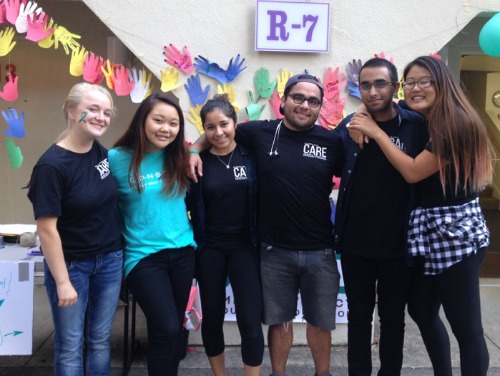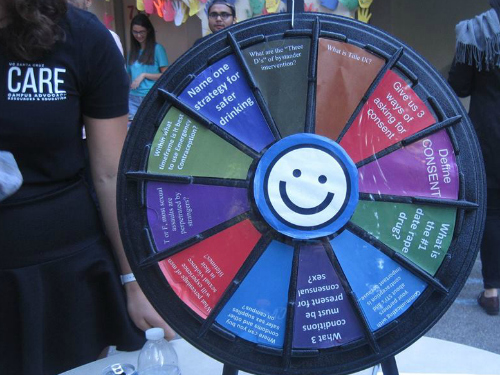Emily Crutcher studied issues of sexuality and gender as a Ph.D. student at UC Santa Barbara. Five years of volunteer experience at a rape crisis support center led her to realize she preferred hands-on work with students.
Since arriving at UC Santa Cruz as the campus’s first CARE advocate in February, she’s had a big role to fill. She’s a full-time confidential advocate and as CARE coordinator she’s getting the office up and running. Previously this work had been done by one staff member housed at Student Health Services through a program called SAFE (Sexual Assault Facts & Education). The new CARE office will house three full-time confidential advocates who can support student, staff, and faculty survivors
Advocacy
Since the beginning of the year, the UC Office of the President has mandated that each UC campus establish an independent, confidential advocacy office for the reporting of sexual violence – defined as dating violence, domestic violence, sexual assault, sexual misconduct, and stalking. The requirement is one of the recommendations of UC President Janet Napolitano’s Task Force on Preventing and Responding to Sexual Assault and Sexual Violence.
The name CARE is also required; each campus can decide what the letters represent. At UC Santa Cruz it’s Campus Advocacy, Resources & Education. The new office opened at Kresge College over the summer. A grand opening for students was held last month and another open house is set for for staff and faculty on December 16 from 4-6 p.m..
Office hours
The CARE office is open Monday-Friday from 9 a.m.-5p.m. in Kresge 714, across from the Owl’s Nest café. Appointments can be made by calling 831-459-2273 or email care@ucsc.edu to reach CARE advocates directly.
Crutcher is joined by Tara Misra, CARE prevention educator who is also an advocate, and by five student staffers. The office is independent and reports to Mary Knudtson, executive director of the Student Health Center.
CARE serves as the primary point of contact for all survivors who experience any form of sexual violence in the UC Santa Cruz community, whether or not they choose to make an official complaint to the campus or police. Other members of the university community who receive reports of sexual violence can also take proactive steps to refer survivors to CARE.
CARE provides workshops and educational events on violence prevention, bystander intervention, creating a culture of consent, healthy relationships, and how to support a survivor. Each incoming student was required to attend a 90-minute presentation on consent culture and preventing sexual violence before classes began this fall. “We balance response with prevention,” Crutcher said.
Confidential conversations
She also emphasizes the confidential nature of CARE services. She and other advocates won’t report to the Title IX office or police. What they will do is explain the options, including filing a report if that is what someone wants to do.
The complainant leads the process, Crutcher said. “My goal is for them to make a fully informed decision. I think of it as describing what the puzzle pieces are; it’s up to them how they want to put them together.”
She makes directed referrals to campus and community resources based on what the person wants to do. The only instance when she is required to break confidentiality is when there is an allegation of child abuse or a threat of self harm or harm to others.
Bottom line, she is an advocate, helping a person navigate campus bureaucracy and processes. “We speak up for them literally as an advocate,” she said.
Recruitment is under way for another CARE advocate and for a Counseling and Psychological Services (CAPS) counselor who will be based at the CARE office. Crutcher said she’d also love to hire a male prevention educator.
Though she earned her masters and was well on her way to a Ph.D., Crutcher is happy to put her academic training to good use helping students and others. “I’m able to use my research in informed practice,” she said.




